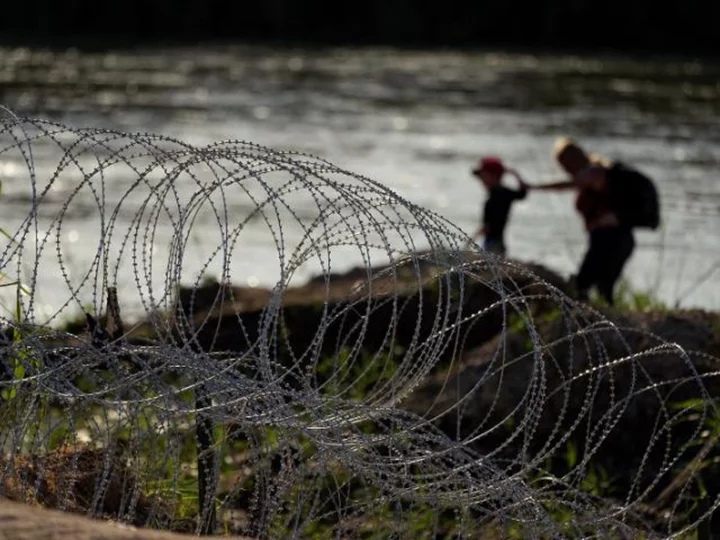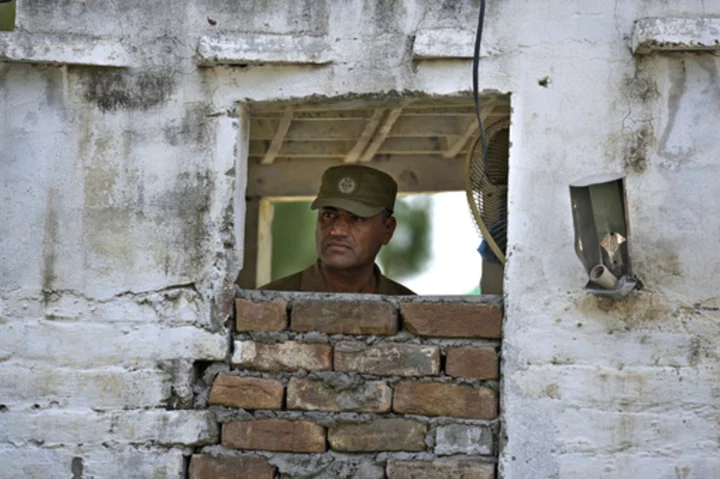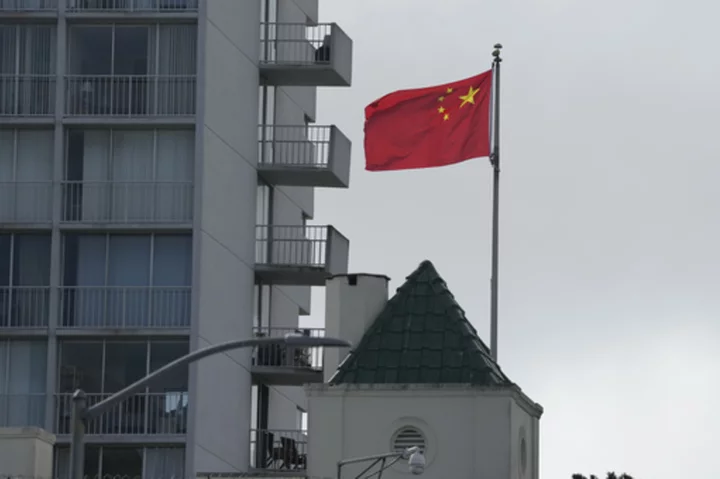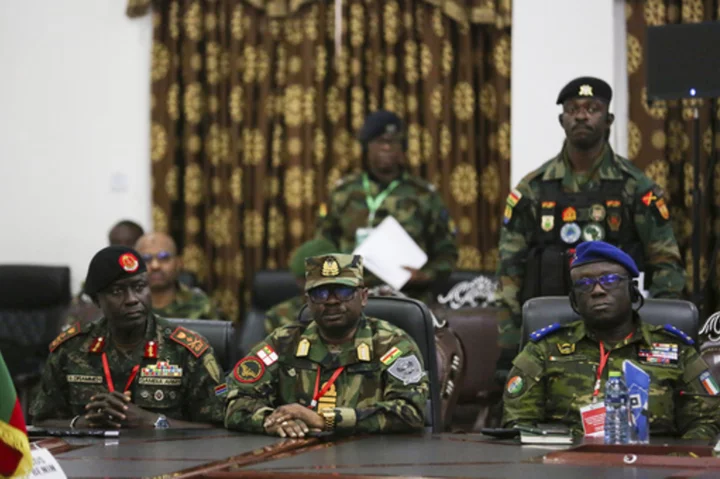Two pregnant migrant women who were looking to turn themselves in to US immigration authorities last week say Texas National Guard members denied them water when they asked for it.
CNN spoke with Maria from El Salvador and Carmen from Honduras on Thursday at a shelter in Eagle Pass, Texas. The women shared only those names for fear of retaliation.
Carmen, who indicated she is six months pregnant, said she and her husband first tried to cross the Rio Grande on July 12 but were met by concertina wire and members of the Texas National Guard.
"They told us it was a crime to cross into the US and that we should return to Mexico," Carmen told CNN.
After asking the soldiers for water, Carmen said, "They told us that they couldn't give us water because it was not their responsibility."
"They asked us why we had left our countries," she said.
On the same day around 2 p.m. when the heat was in full force, Carmen asked for water again.
"They showed us handcuffs and they told us they would arrest us," Carmen said.
"I felt I was suffocating," she said, adding she got into the Rio Grande to feel relief from the heat.
Their stories come after reports that medics from the Texas Department of Public Safety made allegations about inhumane treatment of migrants along the border by state troopers and National Guard members.
The US Justice Department has said it is assessing the situation along the Texas-Mexico border following those reports, which included allegations that state troopers were told to push back migrants into the Rio Grande, and that National Guard troops did push a group back toward the river.
Texas Gov. Greg Abbott deployed thousands of troopers and National Guard members to the border since 2021 as part of Operation Lone Star, which his office has said is meant to deter and repel undocumented migrants from crossing between ports of entry. The National Guard typically serves in a support role and notifies US Border Patrol if they encounter migrants, so that agents can pick them up.
Carmen says she was denied water several more times on July 12. Many areas across Texas have been seeing triple-digit temperatures in a weekslong heatwave this summer.
With no way to turn herself into authorities and fearing the cartels in Mexico, she says, she and her husband spent the night on the riverbank.
"I didn't really sleep," Carmen said, adding she saw snakes on the land. "I was scared."
CNN has sought comment from the Texas National Guard.
Texas National Guard members have not been given any orders to deny migrants drinking water or push them back into the river, the Texas Military Department's public affairs office said earlier this week.
In recent years, migrants have resorted to increasingly risky paths to enter the US. Immigrant rights advocates point to policies that have made it more difficult for migrants to seek refuge in the US.
Earlier this summer, Texas started to install a floating barrier on the Rio Grande to deter migrant crossings along the border.
The owner of Epi's Canoe & Kayak Team LLC sued the state of Texas and Abbott, among others, to stop the installation, alleging that the barrier would prevent the company's operator from conducting tours and canoe and kayak sessions in the border town of Eagle Pass, causing "imminent and irreparable harm to EPI."
Pregnant woman says she declined medical care to stay with husband
At one point during her journey, law enforcement in airboats started circling Carmen and her husband, she said. The wake kept knocking them over -- something that went on for about an hour, Carmen said.
After that, they walked for about two hours before they came to an area on the banks of the Rio Grande, where several of the airboats were docked, she said.
She was very hot as they walked toward the boats, and a paramedic approached her with water and cookies, she said.
Carmen told the paramedic that she was pregnant, and he offered to take her to a hospital. She declined the offer when she learned she had to leave her husband behind, she said.
"He said that he would lose his job if he took both of us," Carmen said.
Carmen told the paramedic they were mistreated by Texas National Guard members, she said.
"I don't know why they treated you badly when all you want is a better life," she remembered the paramedic telling her.
The paramedic took photos with her and her husband, she said.
"Thank you," she remembered telling him before US immigration authorities arrived to take them for processing.









